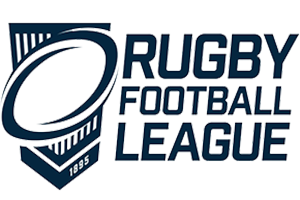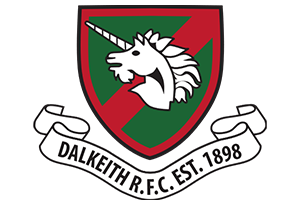COMPLAINTS HANDLING
INTRODUCTION
Every sporting organisation needs an effective procedure for managing complaints. The person in authority in a club who may be required to resolve complaints or concerns in the normal course of their duties can be committee officers (President, Secretary and committee members), coaches, and officials. It should be clear in all clubs who this nominated person is.
Other options for people to register a complaint are:
Victoria Hogg, SRL Child Welfare Officer: 07760 265613 admin@scotlandrl.com
Scotland Rugby League by emailing info@scotlandrl.com or writing to Scotland Rugby League, Caledonia House, 1 Redheughs Rigg, South Gyle Edinburgh EH12 9DQ . General advice is available at www.scotlandrl.com
NSPCC Child Protection 24 hour Helpline 0808 800 5000
RFL Safeguarding Team: safeguarding@rfl.uk.com or writing to the Safeguarding team at the RFL, Red Hall, Red Hall Lane, Leeds, LS17 8NB. General advice is available at www.rfl.uk.com
A club that openly provides avenues for complaints, that responds to complaints quickly in an informed, transparent and impartial way and a club that learns and adapts to issues raised, is a club that is investing in its future.
Incorporating:
- Equality
- Diversity
- Policy
- Child Protection Requirements
- Complaint Handling Procedures
- Codes of Conduct
- Reporting Documents and Forms
Complaints: right approach, right process
What are the five most important steps to take when you receive a complaint?
Either about a member or the club itself?
- What needs to be in place?
- What do you need to know?
STEP ONE: Complaints do not belong ‘under the carpet’
Don’t ever be tempted to ignore the issue or pretend it didn’t happen. Treat all matters seriously and with sensitivity. Act promptly and according to policy as outlined in the RFL rugby football league Member Protection Policy, club constitution or code of behaviour.
STEP TWO: Determine the nature of the complaint
There are many different types of complaints – each will determine the process you choose. Is it an issue that can be dealt with at club level or does it need to be referred to a state or national body? Does it involve allegations of harassment or child abuse?
STEP THREE: Use the Play by the Rules Complaint Handling Tool
Play by the Rules has developed an interactive online tool to help you determine the correct course of action when presented with a complaint. It offers advice relevant to your situation and contacts for organisations that can provide assistance or further information.
STEP FOUR: Choose a course of action
Your next step will be determined by the nature of the complaint; something you should have already settled on in steps two and three. Here are some examples of the options based on a range of different scenarios:
Mediation between the parties may be all that is required to resolve the matter.
Scotland Rugby League may need to be involved in some cases and a tribunal panel convened to hear the complaint. They can also provide access to a Member Protection Information Officer.
If the issue involves harassment or abuse, especially of children, the police or another external agency may be required.
Complaints regarding discrimination, victimisation or harassment could be serious enough to be referred to the police, but should be reported to external agencies such as Human Rights Commission UK.
If the complaint focuses on the club itself it may be time to seek legal advice.
STEP FIVE: Resolve the complaint
Once all the necessary information has been gathered, the facts of the matter determined and the parties involved have all been given a fair hearing, the matter should be resolved.
More information can be found in the ‘About complaints’ section of the Play by the Rules website and the RFL rugby football league Members Protection Policy. Play by the Rules offers free online training, information and resources for clubs and sporting organisations to ensure everyone involved in sport can do so in enjoyable, safe environments, free from discrimination or harassment.
First determined which process applies to the complaint;
Informal process:
Examples of less serious issues that can be dealt with using informal processes include:
- favouritism in team selection
- mild coarse language, yelling
- excessive emphasis on winning
- restriction of access to facilities
Formal process:
Examples of serious issues that should be dealt with using formal processes include:
- Angry/volatile spectators
- Bullying (e.g. initiation rituals/hazing, cyber bullying, ostracising behaviour by an individual or group).
- Sexual harassment
- Racial harassment and vilification
- Gender harassment and vilification
- Homophobia
- Extreme inappropriate coaching style (e.g. profanities accompanying aggressive/threatening gestures)
Complaints that have been assessed at the ‘serious’ end of the continuum lend themselves to a formal process. A formal process usually requires a written complaint asking the club to respond.
As a club administrator it’s important that your handling of complaints is fair, just and transparent (i.e. you follow clear processes and procedures).
You should apply the following principles:
- Treat complaints seriously
- Act promptly
- Treat people fairly and listen to both sides of the story
- Stay neutral
- Keep parties to the complaint informed
- Try to Maintain confidentiality if possible
- Protect against victimisation
- Keep accurate records
- Make decisions based only on information gathered not personal views
- Disciplinary action should be relative to the breach
An interactive complaint handling tool designed to assist you to make informed decisions regarding issues that occur at your club can be found on the Play by the Rules Website
http://www.playbytherules.net.au/about-complaints/complaint-handling-tool
The Complaint Handling Tool aims to assist you in making informed decisions when responding to and handling complaints about off field behaviour and decisions that arise in your club. The information is general in nature and focuses on processes and principles that underpin good practices in complaint handling. It aims to complement, not replace, RFL rugby football league Member Protection Policy. An interactive complaint handling tool designed to assist you to make informed decisions regarding issues that occur at your club.
Dealing with complaints
Dealing with complaints involves talking to the people involved and listening to their respective sides of the story. Before you take this step, think about the best way of organising the meeting, how the people involved might respond and what you can do to manage the situation in a fair and impartial manner. Below are some tips to help prepare for meeting:
- Put yourself in place of the people involved.
- Think about what you’re going to say and how you’re going to say it.
- Consider how the issue relates to your club’s policies and codes of behaviour.
- Recognise that different people will probably want different things.
- Don’t be defensive or allow yourself to be pressured into a particular course of action.
- Be clear about how you will manage expectations about the complaint process and outcomes:
Remember: the safety of club members should be your first priority, particularly if the complaint involves possible child abuse.
Putting yourself in the place of those involved
Think about the complainant
Making a complaint can be very difficult. The person making the complaint may be:
- angry, upset, afraid or hostile concerned that they’ll get a reputation as a trouble-maker
- fearful that there may be retaliation because they’ve made a complaint
- uncomfortable about discussing their concerns
- concerned that little may change as a result of meeting with you
- defensive, particularly if the person against whom they are complaining is another club official.
Be clear about how you will manage expectations
Think about the accused
The person against whom the complaint has been made may:
- react with shock
- be angry
- deny the allegation
- threaten to resign or leave the club
- fear that a complaint will impact on their reputation and standing within the club
- threaten legal action.
The person wants help but doesn’t want to be identified
- Explain you may be limited in what you can do.
- Explore their reluctance: they may be fearful of victimisation or other repercussions.
- Check if they’d be more comfortable talking to someone else in the club.
- Explain that they can go to an outside body, child protection or anti-discrimination agency, at any time.
- Explain that you’ll ensure codes of behaviour and other policies are reinforced.
- Seek advice from the appropriate authority if the matter is serious e.g. suspected child abuse, physical or sexual assault.
- Monitor and review the situation.
If the person insists on immediate disciplinary measures
- Explain that everyone has the right to a fair hearing. This means people are ‘innocent until proven guilty’ and that they have the right to tell their side of the story.
- Make sure the person understands the club’s complaint procedures and let them know that they can go to an outside body if they’re unhappy with the process.
- If the complaint is serious, consider moving the person against whom the complaint has been made to another position that does not involve contact with children, young people or the person making the complaint. Alternatively, you may wish to allocate extra personnel to provide support/supervision as the person being investigated goes about their role.
- Explain that no-one should be victimised as a result of this process
If you have a conflict of interest
- Declare that you have a conflict of interest.
- Arrange for someone else with authority in your club to deal with the complaint.
- Let the person know where they can get help, for example their state’s sport organisation, the department for sport and recreation, child protection and anti-discrimination agencies.
Reporting child abuse
Victoria Hogg, SRL Child Welfare Officer: 07760 265613 admin@scotlandrl.com
Scotland Rugby League by emailing info@scotlandrl.com or writing to Scotland Rugby League, Caledonia House, 1 Redheughs Rigg, South Gyle Edinburgh EH12 9DQ General advice is available www.scotlandrl.com
NSPCC Child Protection 24 hour Helpline 0808 800 5000
RFL Safeguarding Team by emailing to safeguarding@rfl.uk.com or writing to the Safeguarding team at the RFL, Red Hall, Red Hall Lane, Leeds, LS17 8NB. General advice is available at www.rfl.uk.com
Scotland Rugby League requires that any child who is abused or anyone who reasonably suspects that a child has been or is being abused by someone within our sport, to report it immediately to the police.
Verbal notification of alleged child abuse must be followed up in writing within 24 hours to the Scotland Rugby League Chair.
All allegations of child abuse will be dealt with promptly, seriously, sensitively and confidentially. A person will not be victimised for reporting an allegation of child abuse and the privacy of all persons concerned will be respected.
If anyone bound by the policy SRL010-01 Safeguarding policy reasonably suspects that a child is being abused by his or her parent/s, they are advised to report immediately to police or relevant government agency.
If you believe a child is in immediate danger or in a life-threatening situation, contact Police immediately.
Anyone who suspects, on reasonable grounds, that a child or young person is at risk of significant harm should report it to the NSPCC Child Protection 24 hour Helpline 0808 800 5000
COMPLAINT HANDLING PROCESSES
Dealing with issues through informal processes
Characteristics of less serious complaints include behaviour or decisions that are:
out of character for the person about whom the complaint has been made
- one-off
- not entrenched
- low risk of harm/impact on other people
Examples of less serious issues that can be dealt with using informal processes include:
favouritism in team selection
- mild coarse language, yelling
- excessive emphasis on winning
- restriction of access to facilities
Relevant options for resolving less serious complaints include the following (choose the option you believe most appropriate for handling your complaint):
- provide more information to person complaining
- suggest person complaining talks directly with person complained about
- you meet with person complained about
- informal discussion with all those involved
Option 1:
Provide more information to person complaining
This is a good option when:
- You have clear guidelines available and it appears to be lack of awareness of these
- The person complaining is seeking greater understanding
- The complaint is in the early stages of the process
Steps to follow:
- Provide person complaining with copy of Scotland rugby league SRL010-01 Safeguarding Policy, Codes of conduct and/or relevant guidelines
- Explain how these polices relate to the issue/ concern
Further advice on Safeguarding matters can be obtained from:
Victoria Hogg, SRL Child Welfare Officer: 07760 265613 admin@scotlandrl.com
NSPCC Child Protection 24 hour Helpline 0808 800 5000
RFL Safeguarding Team by emailing to safeguarding@rfl.uk.com or writing to the Safeguarding team at the RFL, Red Hall, Red Hall Lane, Leeds, LS17 8NB. General advice is available at www.rfl.uk.com
Scotland Rugby League by emailing info@scotlandrl.com or writing to Scotland Rugby League, Caledonia House, 1 Redheughs Rigg, South Gyle Edinburgh EH12 9DQ General advice is available www.scotlandrl.com
Option 2:
Person complaining talks with person being complained about
This is a good option when:
- The person complaining requests this option
- The complaint is in the early stages of the process
- The focus of the person complaining is to move forward rather than lay blame
- There isn’t a significant power imbalance
- The person complaining is confident &/or isn’t concerned about victimisation
- The club can protect the person complaining against victimisation (e.g. within club policies)
- There is little emotion involved
Steps to follow:
Consider suggesting to the person complaining that they:
- Be sensitive about when and where the talk takes place (e.g. don’t do it in front of the team or other parents)
- Avoid being emotional and don’t personalise concerns. Provide clear examples (e.g. when, where, who)
- Focus on the solution rather than problem (e.g. how to move forward rather than seeking to lay blame)
- Take responsibility to help move forward (e.g. offering to be a team manager)
Option 3:
You meet with person complained about
This is a good option when:
- The problem can be resolved by clarifying your club’s policies or guidelines
- There is a power imbalance between the parties
- You yourself have observed the behaviour
- The person complaining requests this option
Steps to follow:
- Find a time to talk privately with the person being complained about (e.g. not in front of the team or parents)
- Let them know that concerns have been expressed but try not to make the discussion personal (e.g. rather than saying the person is alleged to show favouritism and bias towards their own child say there are concerns that children are not getting equal time in the game)
- Acknowledge their contribution to the club and discuss policies or guidelines that help clarify the club’s position on the issue (e.g. junior sports policy and team selection)
- Ask tor their perspective on the issue and what might have led to this being a concern
- Ask for their ideas on how to sort out the issue
- Check what further support might help them in their role (e.g. training)
- Get back to the person complaining with the outcome and monitor the situation.
Option 4:
informal discussion with all those involved
This is a good option when:
- The issue is not highly emotive or aggression isn’t involved
- It’s appropriate for all parties to hear same message at same time (e.g. clarifying roles and responsibilities)
- The person complaining is open to discussion with other person
Steps to follow:
- Find a time and place when you can get the parties together.
- Reassure both parties that the focus is on talking openly to try and move forward rather than laying blame.
- Make sure both parties have equal “air time‟ so they feel heard (e.g. the person complaining is concerned about the coach shouting at the players and the coach feels stressed because he has too many responsibilities).
- Refer to the club’s policies and guidelines to clarify and provide direction (e.g. Codes of Behaviour, job descriptions, roles and responsibilities).
- Identify common ground and build on this for workable solutions (e.g. that the coach needs more support to undertake his/her role).
- Allow both parties to suggest solutions (e.g. more parents involve themselves with the team as a team manager or scorer.
- Follow up with both parties to check that the problem is resolved.
COMPLAINT HANDLING PROCESSES
Dealing with issues using formal processes
Characteristics of serious complaints include:
- Unlawful behaviour
- Gender harrassment
- Repeated pattern or entrenched behaviour
- More than one person impacted upon
- More than one person perpetuating the behaviour
- Person complaining unable to address issue /Power imbalance
- Conflict of interest
- Person complaining wants formal disciplinary measures imposed
- Has been unsuccessfully resolved at informal level.
Examples of serious issues that should be dealt with using formal processes include:
- Angry/volatile spectators
- Bullying (e.g. initiation rituals/hazing, cyber bullying, ostracising behaviour by an individual or group).
- Sexual harassment
- Racial harassment and vilification
- Gender harassment and vilification
- Homophobia
- Extreme inappropriate coaching style (e.g. profanities accompanying aggressive/threatening gestures)
Complaints that have been assessed at the ‘serious’ end of the continuum lend themselves to a formal process. A formal process usually requires a written complaint asking the club/organisation to respond.
For each process there are a range of options from talking directly with the person complained about through to referral to an external government agency. Relevant options for resolving serious complaints include the following (choose the option you believe most appropriate for handling your complaint):
- Mediation
- Management Committee hearing & decision
- Escalation within sport (to district/state level)
- Referral to external agency
Option 1:
Mediation
This is a good option when:
- The person complaining requests it and the person being complained about is likely to be agreeable to this
- The allegations don’t or are unlikely to warrant any form of disciplinary action
- The facts are not likely to be disputed
Steps to follow:
- Explain to the person complaining and the person being complained about that mediation is a process that may help them understand and explore their issues and find resolution with the help of an independent third party
- Get agreement from both parties that they are willing to meet with a mediator to try and sort out their problems
- Contact https://www.equalityhumanrights.com/en/commission-scotland who can provide practical strategies, mediation services and education programs to help individuals and organisations resolve a wide range of issues without having to resort to legal action. www.cjc.nsw.gov.au
- Discuss the issue with them and arrange mediation if appropriate.
- Appoint a mediator
- Ensure your club’s Committee monitors the situation and reviews policies and procedures to prevent the problem from reoccurring.
Option 2:
Management Committee Hearing & Decision
This is a good option when:
- Mediation is not possible
- The parties disagree about what has happened
- There is a potential detriment to either party
- The matter is one better resolved at this level (rather than escalated to the next level of the sport)
- The matter is unlikely to require an external investigation (e.g. child abuse, physical or sexual assault).
Steps to follow:
- Respond, preferably in writing, to any complaint and explain the process the committee will take in dealing with the complaint.
- Inform the person being complained about of the allegation and the process the committee will take in dealing with the complaint.
- Appoint committee members to hear the complaint who are unbiased and don’t have a conflict of interest
- Ensure both parties get to tell their side of the story before any decision is made by the committee. This may involve both parties attending a committee hearing and providing information to a nominated representative of the committee prior to the committee hearing.
- Decisions must be based on the facts and could include dismissal of the complaint, disciplinary action, referral to a state sporting organisation (or an external body) for further advice, investigation and/or arbitration.
- Keep both parties informed throughout the process and communicate any decisions as soon as possible, including any right of appeal by either party
- Review policies, codes of behaviour and guidelines and communicate these to club members and personnel to prevent further issues arising.
Option 3:
Escalation within sport
This is a good option when:
- There is a possible conflict of interest (or close relationship) between the people on the management committee and any of the parties to the complaint
- It is beyond the skills of the committee and specific expertise or experience may be required to manage the complaint
- The complaint has not been able to be resolved at the club level
- The issue is more serious than first thought
Steps to follow:
- Review your club’s customer charter and procedures to understand how your sport deals with complaints.
- Contact your sport’s Protection Information Officer to discuss the complaint and how your state/district sporting organisation could support your club to handle the complaint.
- If appropriate, refer the complaint to your association and clarify your club’s role.
- Keep the parties involved informed about the complaint process.
- Protect the person complaining and the person being complained about from victimisation.
- Manage any gossip or demands by people who know about the complaint.
- Implement any recommendations and review club policy and procedures.
Option 4:
Referral to external agency https://www.equalityhumanrights.com/en/commission-scotland
This is a good option when:
- Your sport’s member rules and disciplinary procedures do not enable for your state sporting organisation or national sporting organisation to be involved in the complaint (e.g. your only option may be to seek legal advice)
- The person complaining chooses this option (which can happen at any time during the complaint process) After gathering more information, the complaint appears to be very serious
- When the complaint involves harm to a child
- Where the issue may be criminal or unlawful
- When an external investigation is required
- Whenever you are unsure and need to seek further advice
Sporting tribunal operations – what you need to know
As an official, you may occasionally be required to attend a sporting tribunal because of a decision you have made regarding a breach of the playing rules or to provide information about an off-field incident such as spectator violence or some form of harassment or discrimination. Understanding the procedures and requirements associated with sporting tribunals can help assist in the prompt and satisfactory resolution of issues.
Sporting organisations are able to determine how a tribunal is formulated, who adjudicates on the tribunal, and how the tribunal process is to be conducted. In making these determinations, a sporting organisation does not need to abide by any specific legal requirement or process. However, there are three basic principles of natural justice that should be followed by a tribunal to ensure a fair and equitable process is achieved:
- Notification of the charge – the person accused should receive notice of, and know the nature of the allegations made against them.
- Opportunity to respond – the person accused should be given the opportunity to respond to the allegations.
- Decision-makers to be unbiased – there should not be any preconceived opinions, vested interests or personal involvement of the tribunal members.
Tribunals that do not adhere to these principles, and make decisions which unfairly impact on the livelihood or earning capacity of a person may be reviewed by a court of law, with any decision arrived at, or penalty imposed, possibly set aside.
A tribunal is not required to follow any specific legal process other than that outlined in the organisations constitution or by-laws. A tribunal is not expected to act as a court of law, but should conduct the hearing as quickly, informally and comprehensively as practicable.
There is no absolute right to legal representation at a sport tribunal hearing. Most tribunals however are given a discretionary power in their rules, and where an issue involves either a person’s livelihood or a serious allegation, the person should be allowed to be legally represented. If a tribunal is to adjudicate on a matter that involves a person under the age of 18 years, it is strongly recommended that a parent or guardian is allowed to accompany and assist them.
A tribunal can use any information available to it, even if it would not normally be admissible in a court of law. Hearsay evidence can be considered by a tribunal if it is considered reliable, applicable and appropriate. There is no expectation under natural justice principles for cross-examination of witnesses to occur during a tribunal hearing.
Tribunal rules may allow a discretionary power for cross-examination to occur, which, if permitted, should be consistent for both parties. There is no legal obligation however for witnesses to disclose relevant information, or even answer certain questions during a hearing.
Any decisions arrived at by a tribunal should be based only on relevant evidence provided, and should not be influenced by rumour, speculation or gossip. Decisions should also be arrived at on the reasonable satisfaction of the tribunal members or on the ‘balance of probabilities’ (that is, more probable than not). It is considered good practice for tribunals to outline the reasons for any decisions that are made.
Under natural justice principles, a person should be given the opportunity to address the tribunal when the question of penalty is to be decided. The penalty options that a tribunal can impose must be specifically outlined in the organisation’s constitution or by-laws. Any penalty imposed by a tribunal must be reasonable under the circumstances of the case or issue (that is, the ‘punishment’ fits the ‘crime’).














